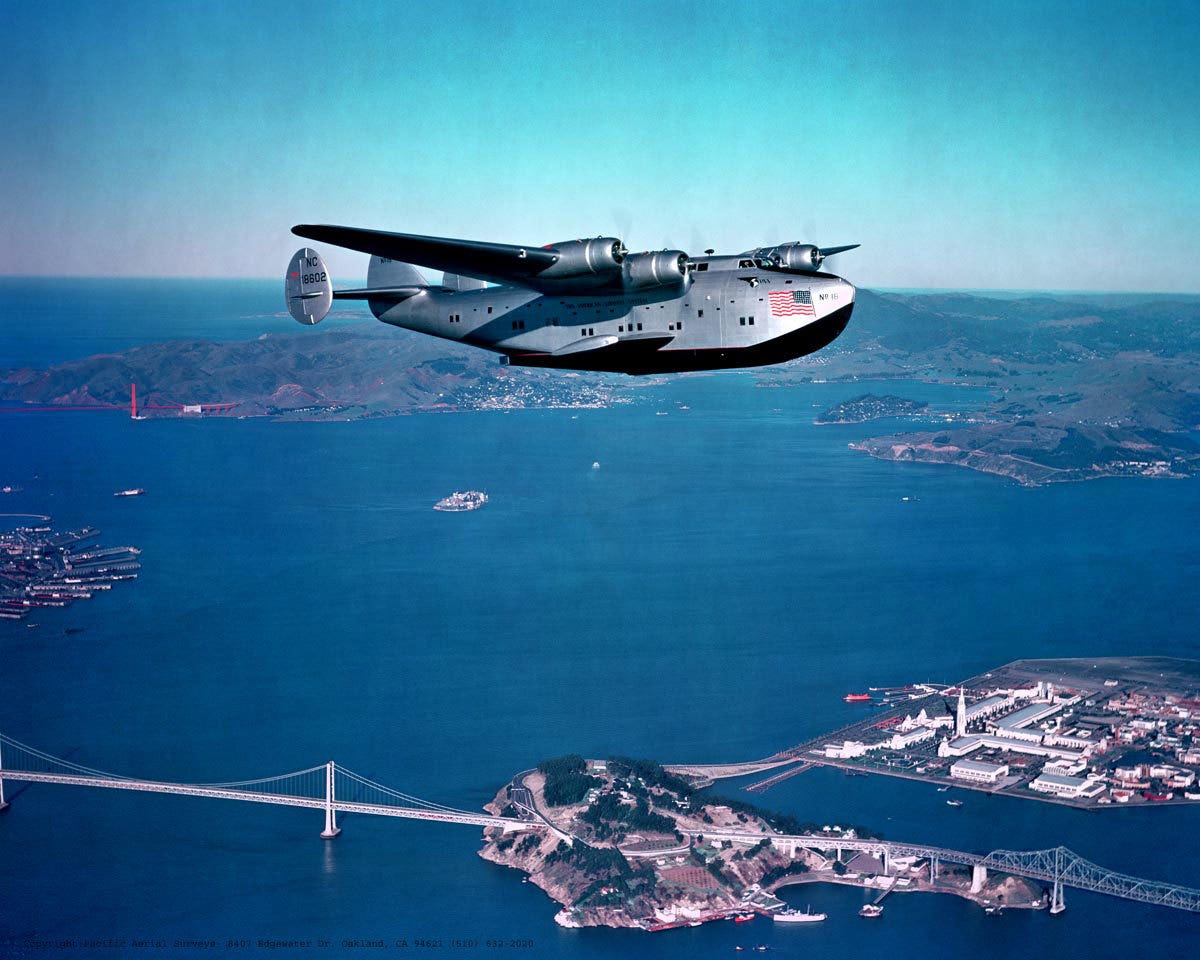I just read this incredible story that I randomly found a link to, wanted to share it, and realized there isn't really a thread for this kind of thing.
Stories like Hugh Glass of the Revenant, the sinking of the USS Indianapolis, or the story of Ken Reusser's unique way of bringing down enemy aircraft, or less well-known but equally unbelievable stories belong here. I'm sure we have some people around that have read or know of some crazy historical stories.
Here's the story that inspired this thread. I'm a huge sucker for WWII history and aviation history, so this one really got me.
Some highlights:
The controller reached for the radio and thumbed it on.
The controller paused for a second. He still couldn’t believe this was happening. If Flight Watch hadn’t heard it too then he’d have probably imagined he was dreaming. In the end he couldn’t resist. He had to ask again.
There was a brief pause, and then the reply came over the radio crisp and clear, leaving no room for doubt.
The librarian raised her eyebrows.
“Let me get this straight.” She said, slowly, her eyes passing across the four slightly sheepish men in Pan Am uniforms standing before her. “You want to see every single map, marine chart and atlas we have in the library?”
“Yes please.” Replied Bob Ford, glancing uncertainly at Mullahey, the Pan Am station chief at Auckland. This had been his idea.
“Also any geography textbooks. Stuff that might have information about winds or currents.” Added Rod Brown, helpfully.
“We need to work out how to get back to America.” Explained Johnny Mack with a smile. Ford had a growing suspicion that Mack might be enjoying this.
The librarian raised her eyebrows again.
“I’ll see what I can do.”
*******************
“Hey Skipper.” He remarked with a frown. “What do you suppose that is, there, dead ahead? A whale maybe?”
Ford squinted, following his First Officer’s gaze to the object on which they were closing fast. Suddenly his eyes flew wide.
“Submarine!” He shouted.
By now the conning tower was visible, a Rising Sun painted on its side, men running towards the large gun on its foredeck.
*******************
“What the hell?!” Shouted Johnny Mack, fighting to right the plane on his own.
“Number three has lost oil pressure!” Shouted Swede from his station. Mack lunged for the controls to shut it down.
“Parrish!” Ford shouted, clawing his way back into his seat to help Mack. “Get up to the observation dome and see if you can make out what’s happened!”
John Parrish rushed to the rear and climbed the ladder to the observation dome through which Rod Brown had been taking astral measurements a few nights before. It didn’t take long to work out that engine three was gone. Blown by the bad fuel mixture and now streaming oil.
******************
If they could reach Leopoldville (now Kinshasa) then the crew knew that they’d at least be back within company territory. They now knew for certain that the Congo Pan Am base Ford had heard talked about existed, but it was both small and very new — one that had barely been established by the outbreak of war. It was company territory nonetheless, and that meant fuel was guaranteed and — just as crucially — it would have all the route maps they could wish for.
******************
Three hours later the California Clipper landed in Natal. She had been in the air for 23 hours and 35 minutes. It was a new world record for a Boeing 314.
As the crew disembarked at Natal the Pan American station manager handed them all a beer. Bob Ford swigged his down in one single gulp.
“Best damn beer I ever had.” He remarked with satisfaction.

Stories like Hugh Glass of the Revenant, the sinking of the USS Indianapolis, or the story of Ken Reusser's unique way of bringing down enemy aircraft, or less well-known but equally unbelievable stories belong here. I'm sure we have some people around that have read or know of some crazy historical stories.
Here's the story that inspired this thread. I'm a huge sucker for WWII history and aviation history, so this one really got me.
Some highlights:
The controller reached for the radio and thumbed it on.
PAN AMERICAN CLIPPER 18602. THIS IS LAGUARDIA. THE SEAPLANE CHANNEL IS CLOSED UNTIL DAYLIGHT. YOU WILL HAVE TO HOLD FOR ABOUT AN HOUR BEFORE WE CAN CLEAR YOU FOR LANDING. OVER.
The reply came swiftly.LAGUARDIA ROGER. NO PROBLEM. WE CAN DO THAT. OVER.
The controller paused for a second. He still couldn’t believe this was happening. If Flight Watch hadn’t heard it too then he’d have probably imagined he was dreaming. In the end he couldn’t resist. He had to ask again.
SORRY PAN AMERICAN CLIPPER 18602 BUT SAY AGAIN, CONFIRM YOUR DEPARTURE POINT. OVER.
There was a brief pause, and then the reply came over the radio crisp and clear, leaving no room for doubt.
I SAY AGAIN, INBOUND FROM AUCKLAND, NEW ZEALAND. BY WAY OF THE LONG WAY ROUND. OVER.
*******************The librarian raised her eyebrows.
“Let me get this straight.” She said, slowly, her eyes passing across the four slightly sheepish men in Pan Am uniforms standing before her. “You want to see every single map, marine chart and atlas we have in the library?”
“Yes please.” Replied Bob Ford, glancing uncertainly at Mullahey, the Pan Am station chief at Auckland. This had been his idea.
“Also any geography textbooks. Stuff that might have information about winds or currents.” Added Rod Brown, helpfully.
“We need to work out how to get back to America.” Explained Johnny Mack with a smile. Ford had a growing suspicion that Mack might be enjoying this.
The librarian raised her eyebrows again.
“I’ll see what I can do.”
*******************
“Hey Skipper.” He remarked with a frown. “What do you suppose that is, there, dead ahead? A whale maybe?”
Ford squinted, following his First Officer’s gaze to the object on which they were closing fast. Suddenly his eyes flew wide.
“Submarine!” He shouted.
By now the conning tower was visible, a Rising Sun painted on its side, men running towards the large gun on its foredeck.
*******************
“What the hell?!” Shouted Johnny Mack, fighting to right the plane on his own.
“Number three has lost oil pressure!” Shouted Swede from his station. Mack lunged for the controls to shut it down.
“Parrish!” Ford shouted, clawing his way back into his seat to help Mack. “Get up to the observation dome and see if you can make out what’s happened!”
John Parrish rushed to the rear and climbed the ladder to the observation dome through which Rod Brown had been taking astral measurements a few nights before. It didn’t take long to work out that engine three was gone. Blown by the bad fuel mixture and now streaming oil.
******************
If they could reach Leopoldville (now Kinshasa) then the crew knew that they’d at least be back within company territory. They now knew for certain that the Congo Pan Am base Ford had heard talked about existed, but it was both small and very new — one that had barely been established by the outbreak of war. It was company territory nonetheless, and that meant fuel was guaranteed and — just as crucially — it would have all the route maps they could wish for.
******************
Three hours later the California Clipper landed in Natal. She had been in the air for 23 hours and 35 minutes. It was a new world record for a Boeing 314.
As the crew disembarked at Natal the Pan American station manager handed them all a beer. Bob Ford swigged his down in one single gulp.
“Best damn beer I ever had.” He remarked with satisfaction.

- 10









